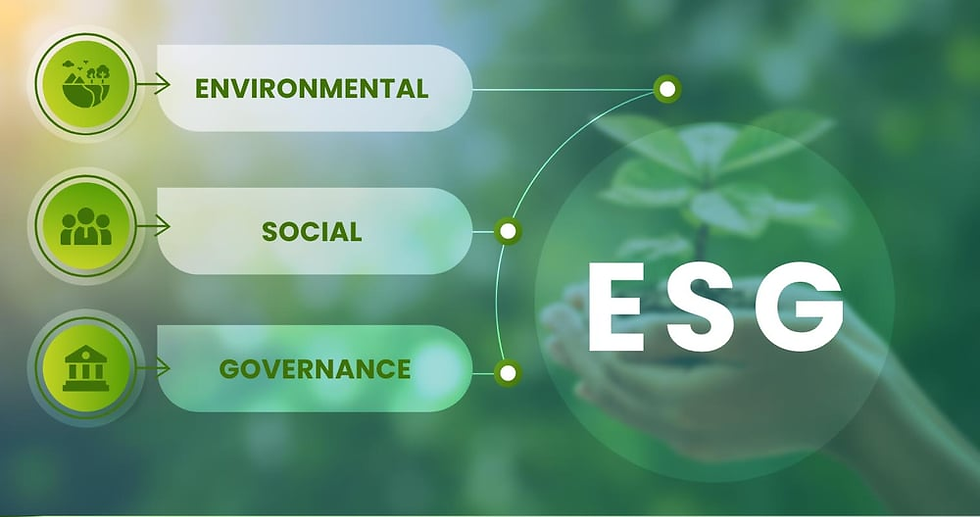ESG 2025: Are Vietnamese Businesses Ready to Step Into the Action Zone?
- Virtus Prosperity
- Sep 26, 2025
- 3 min read

Vietnamese businesses no longer have much time to hesitate with ESG. In the context of increasingly stringent global standards, the shift from “awareness” to “action” is happening faster than ever. According to PwC Vietnam’s ESG Practice Progress Survey 2025, ESG is no longer a mere formality but is becoming a measure of competitiveness and a barrier to entry for any business that seeks to survive and grow sustainably.
1. Signs of Transition
PwC Vietnam has just released the ESG Practice Progress Survey 2025, recording a clear transformation: Vietnamese businesses are stepping out of the “awareness zone” and moving into the “action zone.” ESG is no longer viewed as a compliance procedure but as a strategic priority in planning and operations.
According to PwC Vietnam, 89% of businesses confirmed they have already or will commit to ESG within the next 2–4 years, up from 80% in 2022. Notably, 54% of businesses have already taken action. Differences among groups also reflect varying maturity levels: FDI enterprises lead with 71% having implemented ESG, listed companies follow at 57%, while private or unlisted firms remain at just 27%. The share of companies with no ESG plans has nearly halved, dropping to 11%.
These figures show that ESG in Vietnam has moved beyond awareness into substantive action, becoming a core competitive capability tied to capital access, global supply chain participation, and sustainable brand building.
2. Global Context: Pressure & Opportunity
On the global stage, ESG is no longer a buzzword but has reshaped capital flows and corporate strategies. PwC’s Value in Motion report shows that trillions of USD are being reallocated to sustainable sectors – a structural shift driven by three irreversible forces: climate change, technological innovation, and shifting social expectations.
Regulatory pressure is mounting. The European Union has enacted CSRD and CSDDD, requiring data transparency and independent assurance. In the Asia–Pacific, ESG is also quickly moving from policy orientation to practical implementation. This means ESG is no longer voluntary but has become a mandatory global standard.
In this context, companies slow to adapt risk exclusion from supply chains and loss of capital access, while pioneers gain competitive advantages from green financing, investor trust, and market credibility.

3. Vietnam in the ESG Game
As an export-oriented economy, Vietnam is directly impacted by these global standards. ESG compliance is now a prerequisite to maintain its role in international value chains. At the same time, Vietnam has set two major national goals: achieving high-income status by 2045 and reaching net-zero emissions by 2050.
However, the gap between ambition and execution remains significant: high emission intensity, financial limitations, and institutional challenges. Therefore, PwC’s survey results serve as both a warning and an encouragement: ESG in Vietnam has entered a maturity stage. As Đinh Thị Quỳnh Vân, Chairwoman of PwC Vietnam, stated: “The global transition aligns perfectly with Vietnam’s green growth orientation. This is both an unprecedented opportunity and an urgent call to action.”
Echoing this view, Nguyễn Hoàng Nam, Deputy General Director of PwC Vietnam, emphasized: “Vietnamese businesses are entering the maturity stage of ESG. The move from planning to action is evident, but the journey ahead requires an integrated strategy, built on data and close collaboration.”
4. From Compliance to Strategy
The ESG landscape in Vietnam is shifting rapidly. But to sustain competitive advantage, businesses cannot stop at compliance, which only meets short-term requirements. ESG must be positioned as a core strategy, integrated into all aspects of operations: risk management, supply chain operations, product innovation, and people development.
Only when ESG is treated as the foundation for sustainable growth models can businesses align their objectives with national directions and global standards. In other words, ESG is not a burden or cost, but a long-term investment — an investment to survive, adapt, and thrive in an uncertain world.
The question for Vietnamese businesses is no longer “Should we do ESG?” but rather “What approach will we take?” Will they stop at compliance, or will they proactively integrate ESG as a core strategy to turn challenges into competitive advantages? The path chosen today will determine whether businesses can stand firm and break through in the decade ahead.



Comments